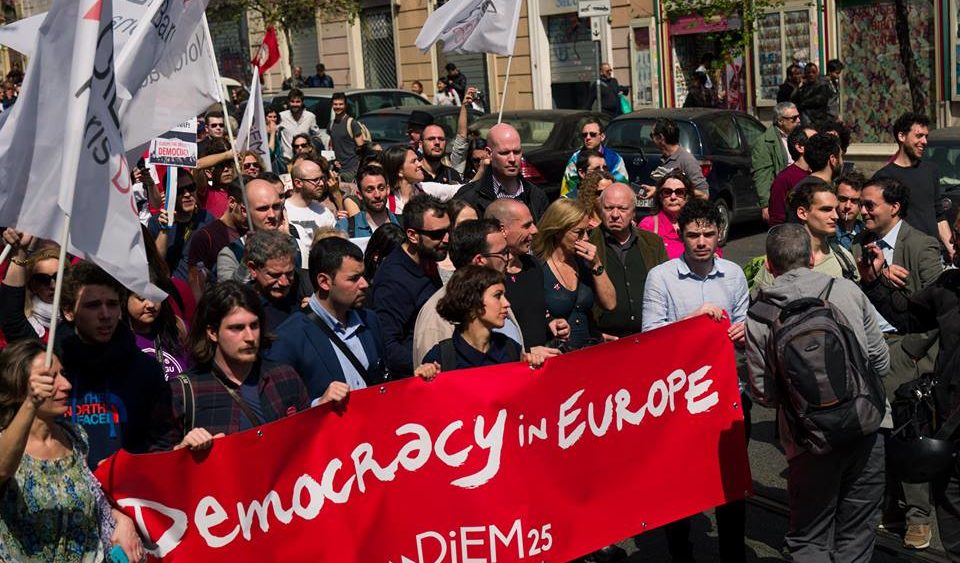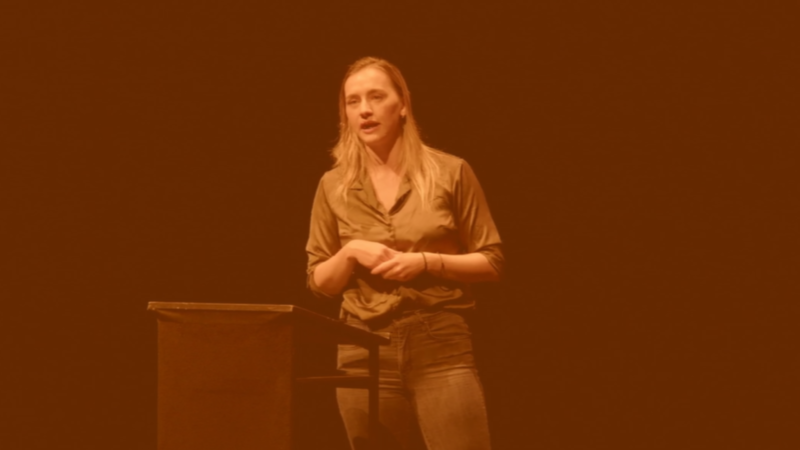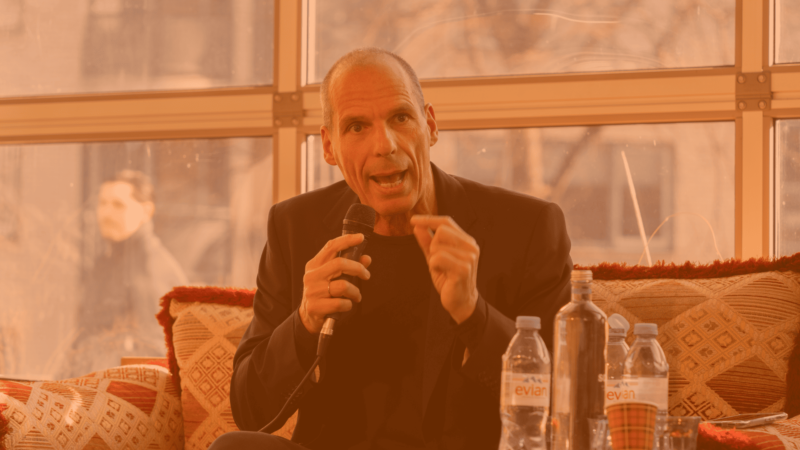The crisis in which the European Left finds itself is not only a political crisis: it is also, and even above all, the crisis of the Left’s social base. Broadly speaking, such a crisis coincides with that of society, i.e. of the common space that allows individuals to live together. Bringing back progressive politics means therefore bringing back society as such. To do so, it is necessary not only to rebuild the parties of the Left, but also their social base.
However, this will not happen by simply reclaiming past achievements. It is thus necessary to acknowledge the death of the “traditional” Left, without relinquishing its ideals, nor its aspirations. The time has come for a new political movement, which must learn the lessons of history, by adopting three mottoes: “grassroots”, “communication” and “electoral action”. The Coordination Collective’s proposal to establish an electoral wing points precisely in this direction. It should therefore be accepted, at least in its broad strokes.
In the aftermath of another round of elections across Europe, we are left to wonder whether reports of the death of the Left might not have been at all exaggerated. As professor Sheri Berman observes, in an op-ed contribution for The New York Times, the historic defeat of the German Social-Democratic Party (SPD) in the last federal elections could have marked the end of the political framework that has shaped European societies since the end of World War II.
Such a framework has rested on two pillars, i.e. a social-democratic and a conservative pole, which have been able to compete for government, by articulating clearly distinct sets of policies, while agreeing on the basic tenets of liberal, capitalist democracy. However, the first pillar is now crumbling, which is paving the way for the rise of national-populist parties. Those parties have, indeed, succeeded in appealing to social and demographic groups that had historically supported not only the Social Democrats, but the Left in general, such as “blue collar” workers, students, public employees and young voters.
This last point allows us to draw two alarming conclusions. First, the crisis of social-democratic parties is nothing but the tip of the iceberg, the base of which consists precisely in the crisis of the whole Left, ranging from classical Social Democracy, to green and post- or neo-communist parties. Second, such a crisis is not only political, since it impinges on the very social basis of progressive politics.
Those conclusions are further supported by the results of the last Austrian general elections, as reported by Benjamin Opratko in The Jacobin: the right block, comprised of the far-right Freedom Party of Austria (FPÖ) and the traditionally mainstream conservative, yet now more right-wing than ever, Austrian People’s Party (ÖVP), won a combined share of 57.5 percent of the vote, i.e. 103 out of 183 MPs. Austria has thus elected the most right-wing parliament since 1945. Moreover, significant sectors of the Austrian Left have pandered to the prevailing populist rhetoric and xenophobic sentiments, such as the Social-Democratic Party of Austria (SPÖ) and the newly founded “Liste Pilz” (“Pilz’s List”), run by former Green politician Peter Pilz. Further to the left, the Austrian Greens fell below the 4 percent threshold, thus failing to elect any MP, whereas the alliance forged by the Communist Party of Austria (KPÖ), the Greens’ former youth branch and self-styled leftists earned less than 1 percent of the vote. The picture could hardly have been bleaker.
What needs to be done, then? To answer such a crucial question, it is necessary to grasp the nature of the relations between left-wing parties and their social basis. Historically, social-democratic, communist and green parties have always arisen as the political offshoots of vibrant social movements: trade unions, working class mutual aid associations, cooperative societies, religious communities, environmental protection organizations, anti-colonialist, feminist, civil rights and LGBTQ movements. Such movements have not only provided progressive parties with electoral momentum, but they have also built large networks that have allowed the disenfranchised to socialize and to empower themselves.
The crisis of the political Left is thus nothing but the final act of a tragedy that started to unfold at the end of the ‘70s, the deep sense of which is perfectly summarized by Margaret Thatcher’s quote: “And you know, there’s no such thing as society”. As historian Tony Judt puts it in his essay Ill Fares the Land, “what we have been watching is the steady shift of public responsibility onto the private sector to no discernible collective advantage”, which caused, in turn, “an increased difficulty in comprehending what we have in common with others”. It follows that bringing back progressive politics means bringing back society itself, understood as the common space where single individuals can reclaim the capacity to flourish, through free collective association and with the support of public institutions. Nevertheless, which forces could possibly achieve such a goal? And by what means?
Existing progressive forces seem doomed to fall short of the mark. Western communist parties had already lost most of their social basis even before they were buried by the fall of the Berlin Wall. Nowadays, they have either been marginalized, such as the French Communist Party (PCF), or drifted away from the Left, such as the heirs of the Italian Communist Party (PCI). As for the Greens, they embodied the hope for a renewal of progressive politics throughout the ‘80s and the ‘90s, fueled by new forms of civic engagement. However, they have been steadily abandoning their “alternative” roots to fully integrate into existing institutions, as in the case of the German and the Austrian Greens.
Social-democratic parties have long represented the beacon for progressive politics in Western Europe, by helping to craft the welfare state system as we know it. By a strange irony of fate, those same parties have been instrumental in dismantling such a system in the last two decades. Nonetheless, the demise of social-democratic parties cannot be reduced to the treachery of their élites. On the contrary, it is rooted in two structural weaknesses of the compromise between capital and labor that they helped to bring about. As Tony Judt remarks, social-democratic parties benefited from “a very particular combination of circumstances”, both from a political and an economic point of view, which were doomed to fade away. Moreover, they tied their political action to the framework of the nation state, which has been in a state of crisis for the last forty years. However, could the social-democratic tradition possibly be revivified?
Although the moral ideals that inspired Social Democracy could undoubtedly prove useful for bringing society back, the political and social forces that embodied such ideals are now dead, or dying. To revivify the Left, a new kind of political movement is needed, which shall be capable of learning from its history. Two teachings are particularly important. On the one hand, political action should be tied to fresh, forward thinking. On the other hand, the gap between political and social action should be bridged by fostering participation and shared responsibility. Such a movement will thus have to answer not only the question of knowing what needs to be done, but also that of knowing how this needs to be done, i.e. the problem of organization itself.
Three keywords are essential in this respect. The first is “grassroots”, since this new movement will need to establish the largest possible social basis, while supporting all the other forces that share its goals. The second is “communication”, since this new movement shall also spread its values and policies as broadly as possible, by combining old and new media activism with street activism, canvassing and new forms of political action. The third is “electoral action”, which, in the context of a democratic state, constitutes an essential tool for establishing and reversing power relations between social groups. As previously observed, left-wing “electoral vehicles” have historically emerged as the culminating point of a long process of self-organization, promoted by social movements that shared the same long-term goals. It might therefore be argued that the grassroots and the communication phase should be prioritized over the electoral one.
However, as Machiavelli teaches us, political action is nothing but the result of the struggle between the will of political subjects and everchanging conditions, which are not of their own choosing. In such a struggle, timing is essential, even more in times where windows of opportunity open and close very rapidly.
DiEM25 perfectly fits the identikit of the political movement that is needed in our times. We have been promoting and sharing new, credible ideas for a better Europe, while fostering the active participation of concerned citizens. All our defects notwithstanding, we have been making concrete progress in building the social basis that such a movement needs. However, our efforts run the risk of unravelling, unless we can find a suitable political and electoral vehicle for our ideas and our actions. That is why the proposal of DiEM25’s Coordinating Collective to create an electoral wing should be supported, at least in its broad strokes, since it clearly acknowledges the necessity of building an electoral vehicle that shall be tightly connected to a broader social and political movement, thus going well beyond traditional parties.
Most importantly, it acknowledges the necessity to take such an important step “at the right time”, given the circumstances we are facing. Now is the day, let’s seize it together.
Carpe DiEM!
Nicola is a member of the Paris DSC.
Do you want to be informed of DiEM25's actions? Sign up here















